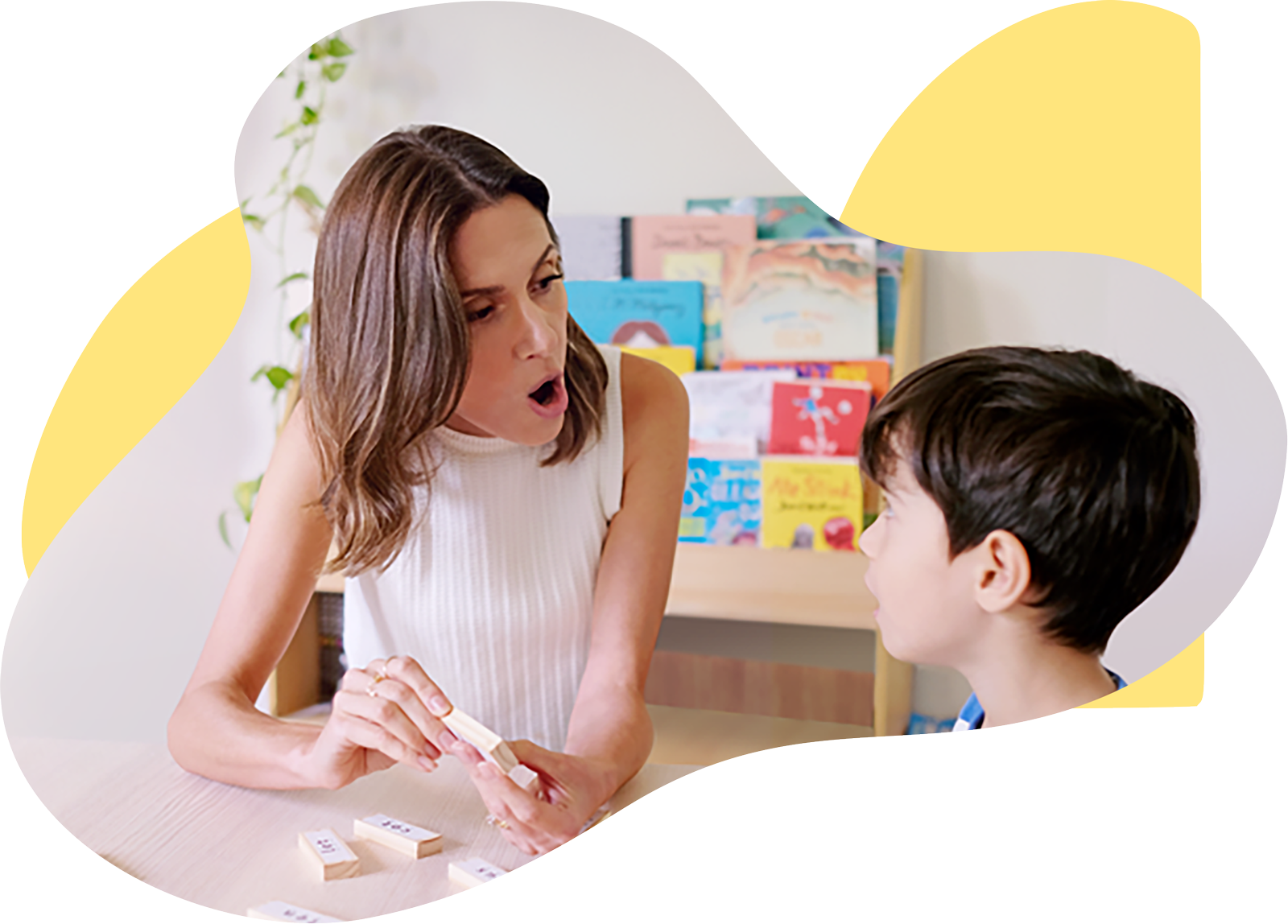We empower kids
As a primary school teacher and parent, it is clear to me that when a child has been equipped with these fundamental skills, it shows in the classroom. Our school readiness classes aim to help your child with these basic, tangible skills to allow them to walk through the classroom door with confidence.
Personalised approach
We take pride in delivering personalised attention and support to each child. With a maximum of six students per class, our program offers ample one-on-one teaching and assistance.
Session information
We currently offer eight weekly sessions held on Mondays, Tuesdays, Wednesdays, Thursdays, and Fridays from 9:45am to 11:15am, as well as Monday, Thursday and Friday afternoons from 1:00pm to 2:30pm. Our classes are suitable for children aged 3.5 to 5.5 years old.

During our classes, children will be exposed to a variety of engaging literacy and numeracy activities. However, our program is not solely focused on academics. We also understand the importance of developing the skills that support your child socially, emotionally and physically.
With small class sizes, personalised attention, and a focus on key foundational skills, your child will be equipped for a successful transition to primary school!
Pre-reading & writing skills
- Distinguishing between words and pictures.
- Predicting what might happen in a story.
- Retelling stories.
- Understanding reading conventions.
- Talking about books and stories.
- Building foundations for reading.
- Developing phonological awareness, includes rhyming words, individual letter sound correspondence, blending and segmenting, counting syllables, and sound repetition.
- Beginning to read.
- Holding a pencil with an appropriate grip.
- Forming letters correctly.
- Engaging in fine motor activities to build muscle strength.
…and more!
Numeracy
- Number recognition to 10
- Using one-to-one correspondence when counting to 20.
- Understanding basic mathematical concepts.
- Grouping objects.
- Identifying and naming basic geometric shapes.
- Recognising shapes in different contexts.
- Recognising and attempting simple patterns.
- Sorting and classifying objects.
…and more!
Social & Emotional Skills
- Playing cooperatively with other children by sharing and taking turns.
- Making eye contact while talking.
- Recognising and understanding emotions and needs expressed by others.
- Expressing feelings and why they feel a certain way.
- Seeking help whenever needed.
- Building positive relationships with educators and other trusted adults.
- Responding to diversity with respect.
- Interacting with others with care, empathy and respect.
- Becoming aware of fairness.
Fine Motor & Cognitive Skills
- Holding a pencil with an appropriate grip.
- Cutting along a line with scissors and cutting out shapes.
- Recognising their own first name.
- Writing their own name with a capital letter to start.
- Understanding reading conventions.
- Concentrating on a story in group settings and answering open-ended questions.
- Copying simple shapes.
- Naming primary and secondary colours.
- Attempting to solve problems independently.
Communication & Language Skills
- Talking to other children and adults about familiar objects and events.
- Speaking clearly and audibly with other children and adults.
- Carrying out 3 directions in sequence.
- Listening attentively and answering questions in a small/whole group situation.
- Reciting rhymes, singing songs, and retelling stories.
- Communicating needs.
Independent Skills
- Goes to the toilet independently.
- Can dress themselves.
- Washes and dries their own hands independently.
- Looks after their belongings.
- Tidies up their own things and packs away.
- Investigates new learning experiences on their own.
- Keeps trying to work things out, even when an activity is challenging.
- Opens and closes their own lunch containers.